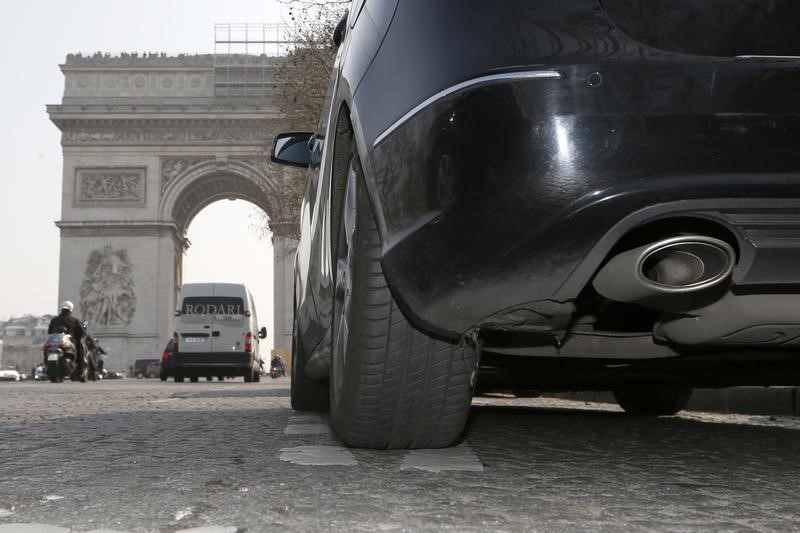By Alissa de Carbonnel
BRUSSELS (Reuters) - The European Parliament delayed on Thursday a vote on whether new car pollution testing rules are too lax, as the biggest political group argued rejecting a draft law could further postpone the introduction of stricter rules.
With political momentum strong for tougher emission measures after the Volkswagen (DE:VOWG_p) scandal, lawmakers were due to vote next week on a parliamentary proposal to reject a compromise agreed by representatives of the 28 European Union nations in October.
The diluted deal would allow cars to carry on spewing more than twice official limits on nitrogen oxide (NOx) emissions, blamed for premature death and respiratory diseases.
It was overwhelmingly rejected by the assembly's environment committee last month, but members of the centre-right European People's Party and of the Socialists and Democrats supported pushing back a plenary vote until next month.
If parliament rejects the EU's emissions testing deal, it could mean a delay of around two years while the EU executive drafts a new proposal to bridge the gap between real driving conditions and tests conducted under artificial ones.
Meanwhile, some politicians voiced worries that old limits would still apply and the automotive industry, despite earning a reprieve, would lack certainty to invest in cleaner technology and prepare for new regulations.
The European Commission could amend the proposal to avoid parliament killing the existing deal, politicians said.
"We are in favour of a postponement of the decision to have time for a compromise package," said German Socialist Matthias Groote. "We are negotiating informally with the Commission and we want something substantial in our hands at the end of the day, if we vote against the objection."
Green politicians criticised the delay, calling it a ploy to derail a push to toughen up the watered-down rules after many of the 28 member states demanded leeway to protect their car industries.
Revelations by Volkswagen in September that it had installed software in diesel vehicles to deceive U.S. regulators over toxic emissions blamed for premature death created a political firestorm in Europe where roughly half of vehicles are diesel.
The weakened EU proposal calls for "real-world" testing from 2017 to curb discharges that have surged to more than seven times their European limits. After 2020, it would still allow a 50 percent overshoot above the legal ceiling for nitrogen oxide readings of 80 milligrams/kilometer.

"Nobody wants to slow down the whole process," Dutch Liberal politician Gerben-Jan Gerbrandy said. "On the other hand ... if we allow cars to emit so much more than legally already in the law, we don't give members states the instruments they need to clean up air in cities."